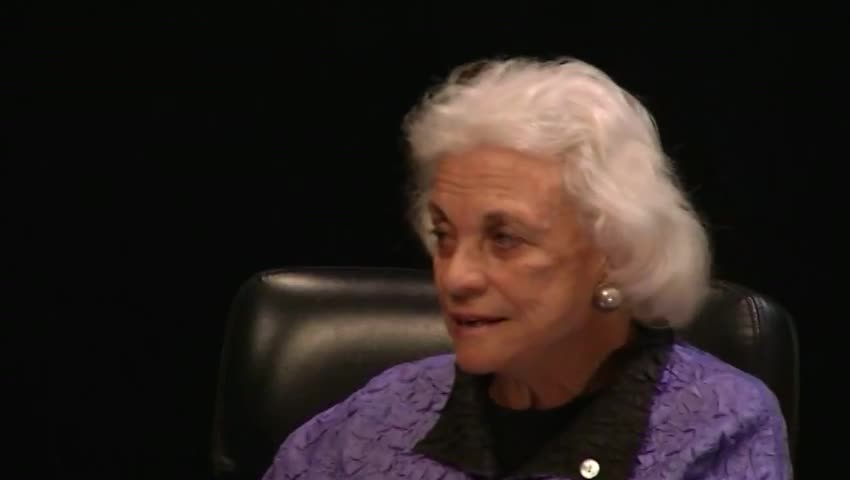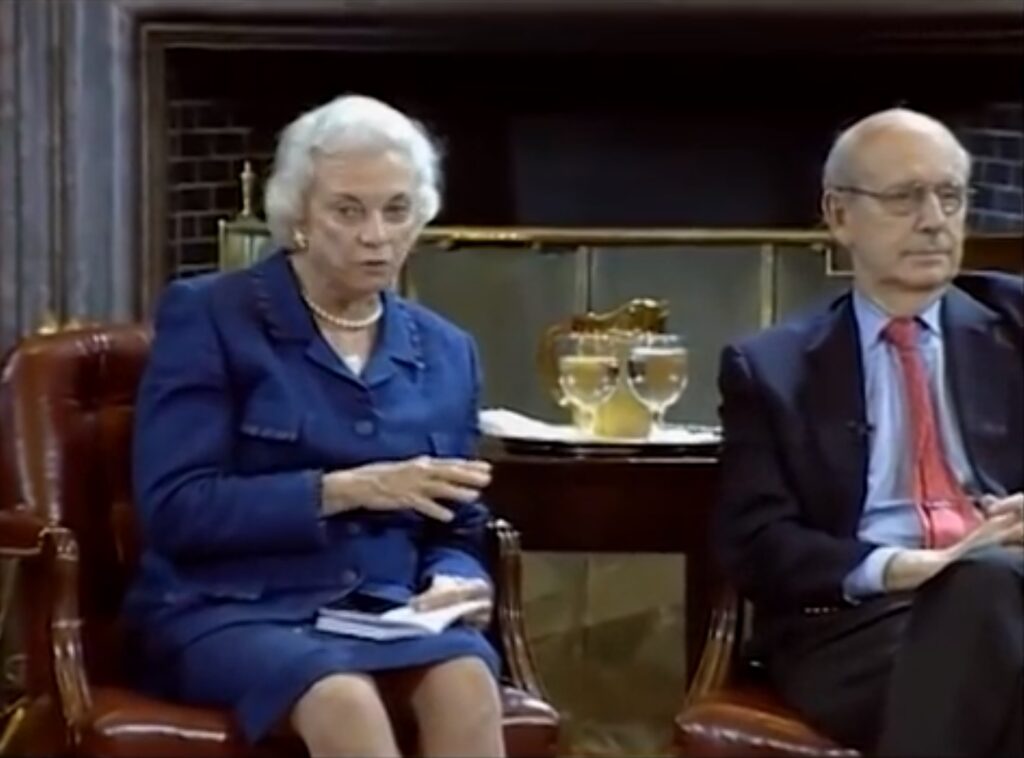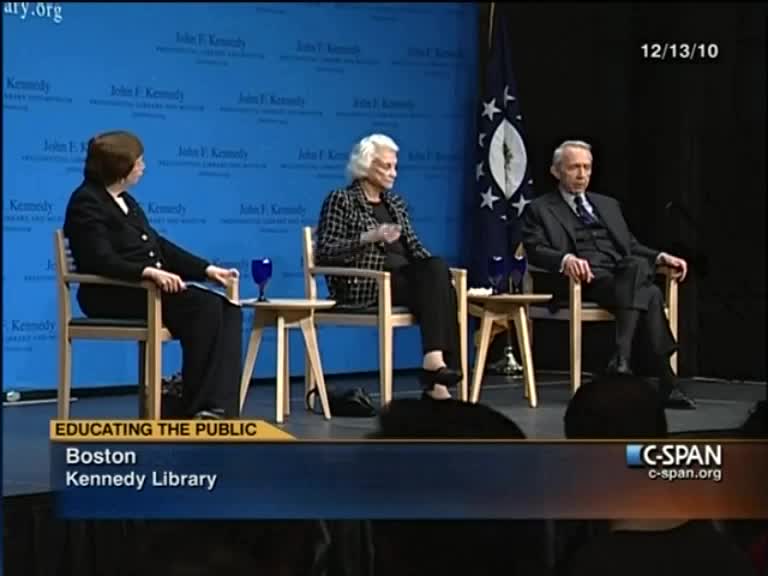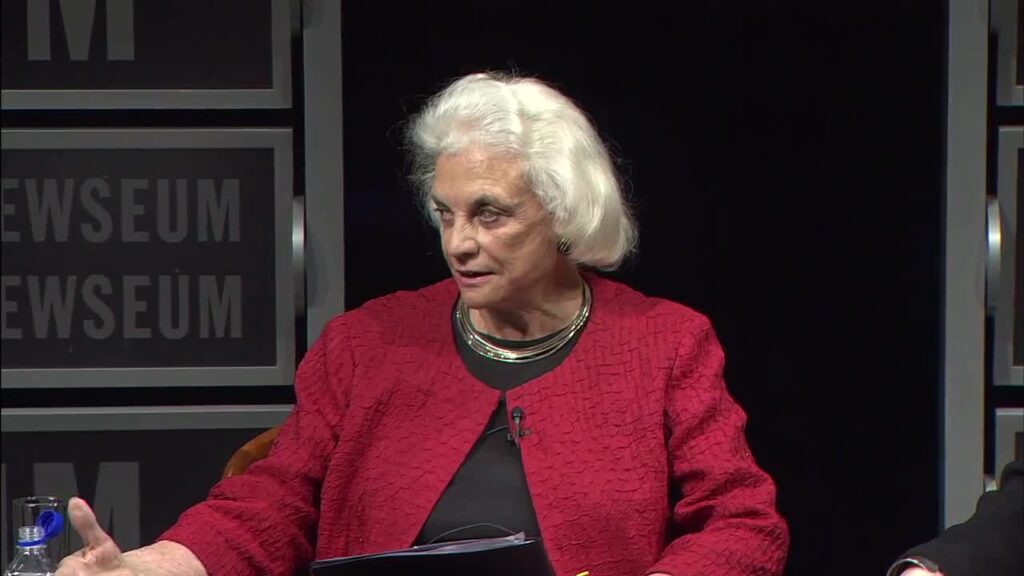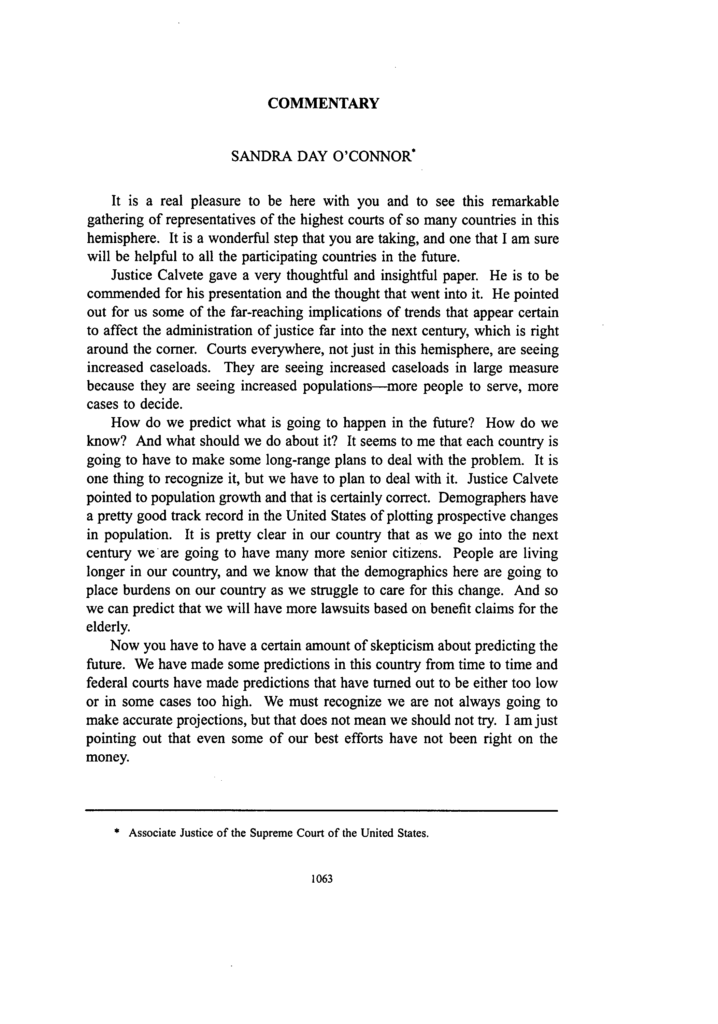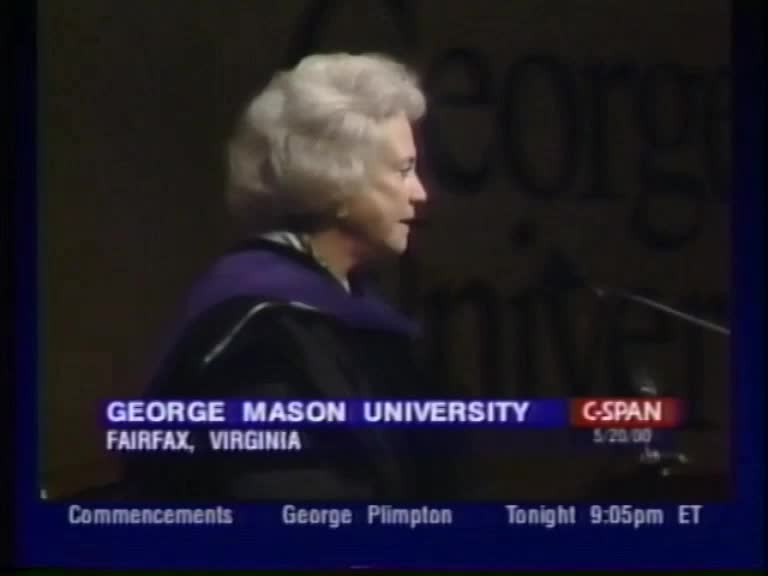Conversation with students on the 4th Amendment
Unknown Speaker Good evening, Justice O’Connor. My name is Jordan speed and I’m from Wichita, Kansas. How does the Supreme Court decide when a search and seizure is unreasonable? And when it is reasonable? Sandra Day O’Connor Well, it’s a vague sort of a standard issue well know what’s reasonable depends very often on the circumstances in their particular case, the Supreme Court, in effect, has determined that if a search of a suspect is unreasonable under constitutional standards, then the evidence cannot be admitted against that person in any criminal proceeding against the person. Now, you know, many countries around the world don’t follow an exclusionary rule that’s called an exclusionary rule where you can exclude that evidence from any trial proceeding against the person that the state is trying to prosecute. And that’s rather a dramatic limitation on evidence that can be used by this state against someone. And many countries don’t do that. So great britain did, and the United States system map and I guess, Australia to a degree and other common law countries from the British system, but not everybody in the world. Thanks. That’s a good system. But we do and we have this exclusionary rule. So deciding whether a particular search or a seizure of some kind of evidence to use against someone in a criminal proceeding requires judges at the end of the day to make a determination whether that particular seizure or search was reasonable. Well, what’s reasonable? You have arguments

